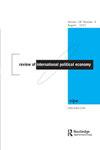Back to Dakar: Decolonizing international political economy through dependency theory
IF 3.7
1区 经济学
Q1 ECONOMICS
引用次数: 4
Abstract
Abstract Whereas the field of International Political Economy (IPE) included a diversity of voices at its outset, histories of the field tend to marginalize certain contributions - particularly those from the Global South. The endeavor to decolonize IPE offers an opportunity to look back at IPE’s history, re-discover the marginalized voices, and imagine new possible futures. This article engages with contemporary calls to decolonize IPE and proposes an alternative route to do so by recovering dependency theory. We argue that dependency theory can be conceptualized as a peripheral IPE perspective that was committed to thinking from the Global South and to producing politically engaged scholarship just as the field was being formed. The article elaborates on the key tenets of dependency theory, contrasting it with mainstream IPE, and putting it in dialogue with decolonial approaches. To demonstrate the simultaneous non-Eurocentric, anti-colonial, and policy-oriented potential of dependency theory, we recover a foundational moment that disciplinary histories of IPE have forgotten: the 1972 Dakar conference, organized by Samir Amin, with the participation of leading Latin American and African dependency scholars.回到达喀尔:通过依赖理论去殖民化国际政治经济
尽管国际政治经济学(IPE)领域在一开始就包含了各种各样的声音,但该领域的历史倾向于将某些贡献边缘化-特别是来自全球南方的贡献。去殖民化IPE的努力提供了一个机会来回顾IPE的历史,重新发现被边缘化的声音,并想象新的可能的未来。本文结合当代要求国际政治经济学去殖民化的呼声,提出了一种通过恢复依赖理论来实现这一目标的替代途径。我们认为,依赖理论可以被概念化为一种外围的国际政治经济学观点,它致力于从全球南方思考,并在该领域形成时产生政治参与的学术研究。本文详细阐述了依赖理论的关键原则,将其与主流国际政治经济学进行了对比,并将其与非殖民化方法进行了对话。为了证明依赖理论同时具有非欧洲中心主义、反殖民主义和政策导向的潜力,我们回顾了国际政治经济学学科史上被遗忘的一个基本时刻:1972年由萨米尔·阿明组织的达喀尔会议,拉丁美洲和非洲的主要依赖学者参加了会议。
本文章由计算机程序翻译,如有差异,请以英文原文为准。
求助全文
约1分钟内获得全文
求助全文
来源期刊
CiteScore
9.20
自引率
9.30%
发文量
47
期刊介绍:
The Review of Political Economy is a peer-reviewed journal welcoming constructive and critical contributions in all areas of political economy, including the Austrian, Behavioral Economics, Feminist Economics, Institutionalist, Marxian, Post Keynesian, and Sraffian traditions. The Review publishes both theoretical and empirical research, and is also open to submissions in methodology, economic history and the history of economic thought that cast light on issues of contemporary relevance in political economy. Comments on articles published in the Review are encouraged.

 求助内容:
求助内容: 应助结果提醒方式:
应助结果提醒方式:


